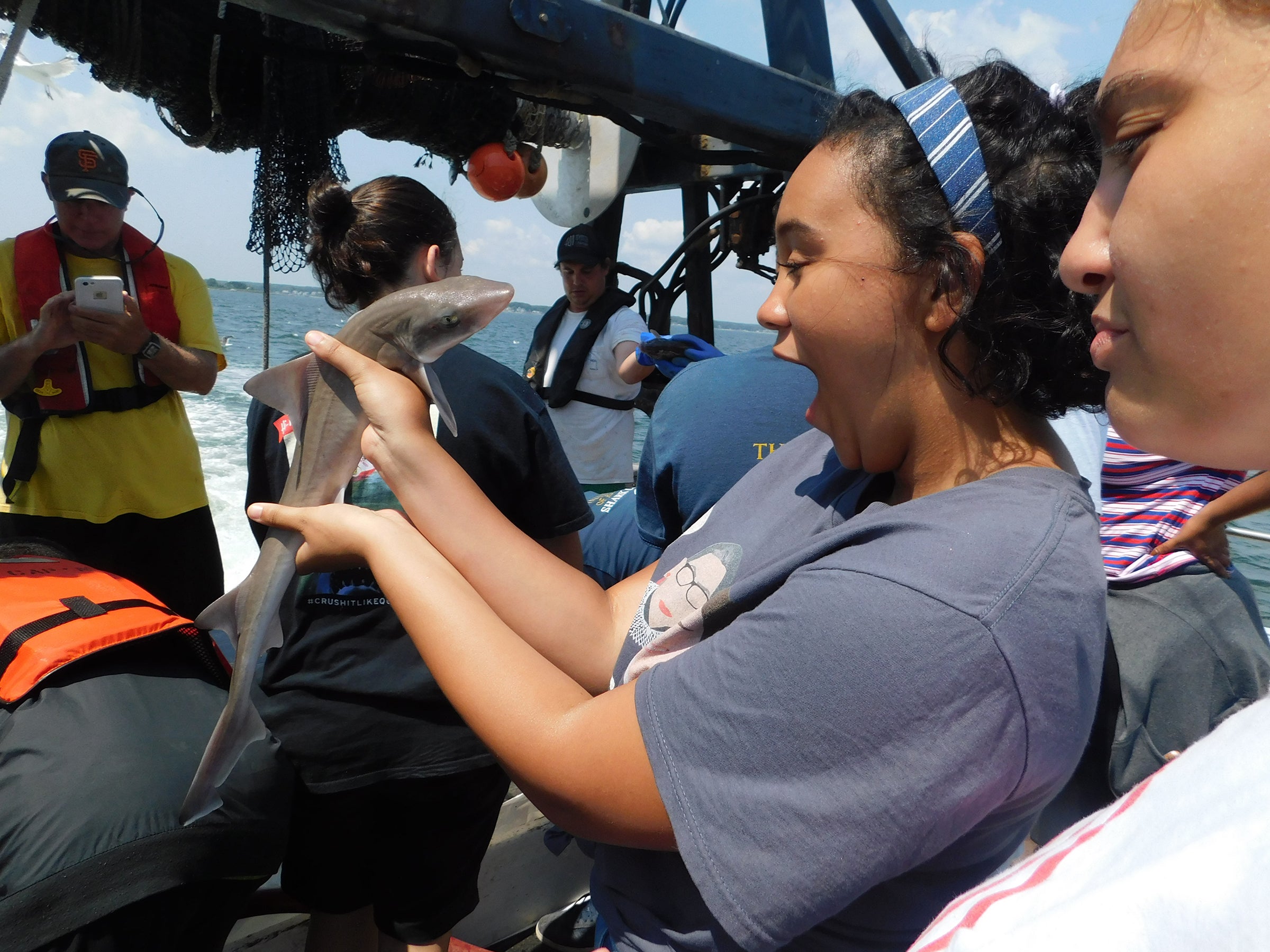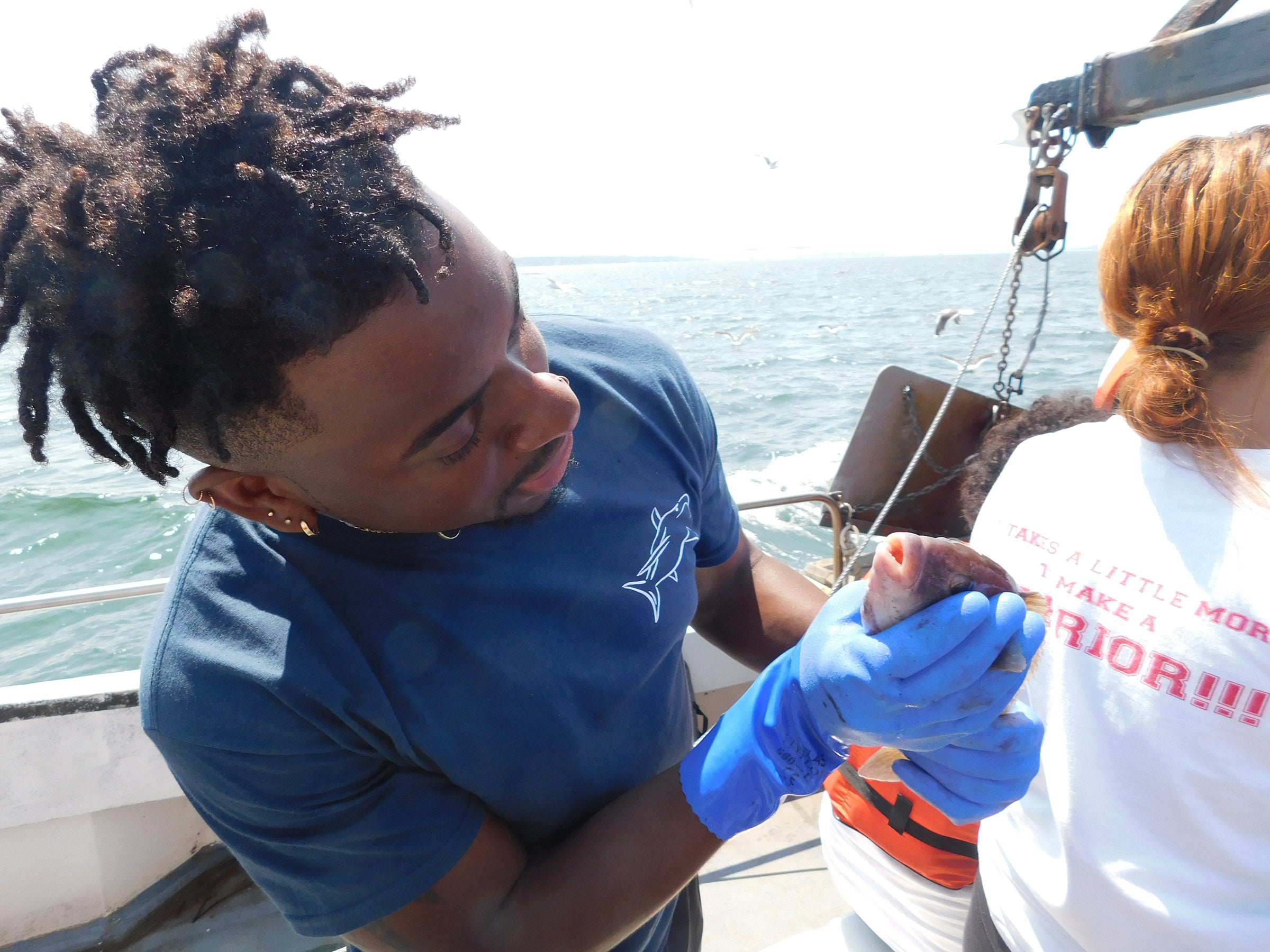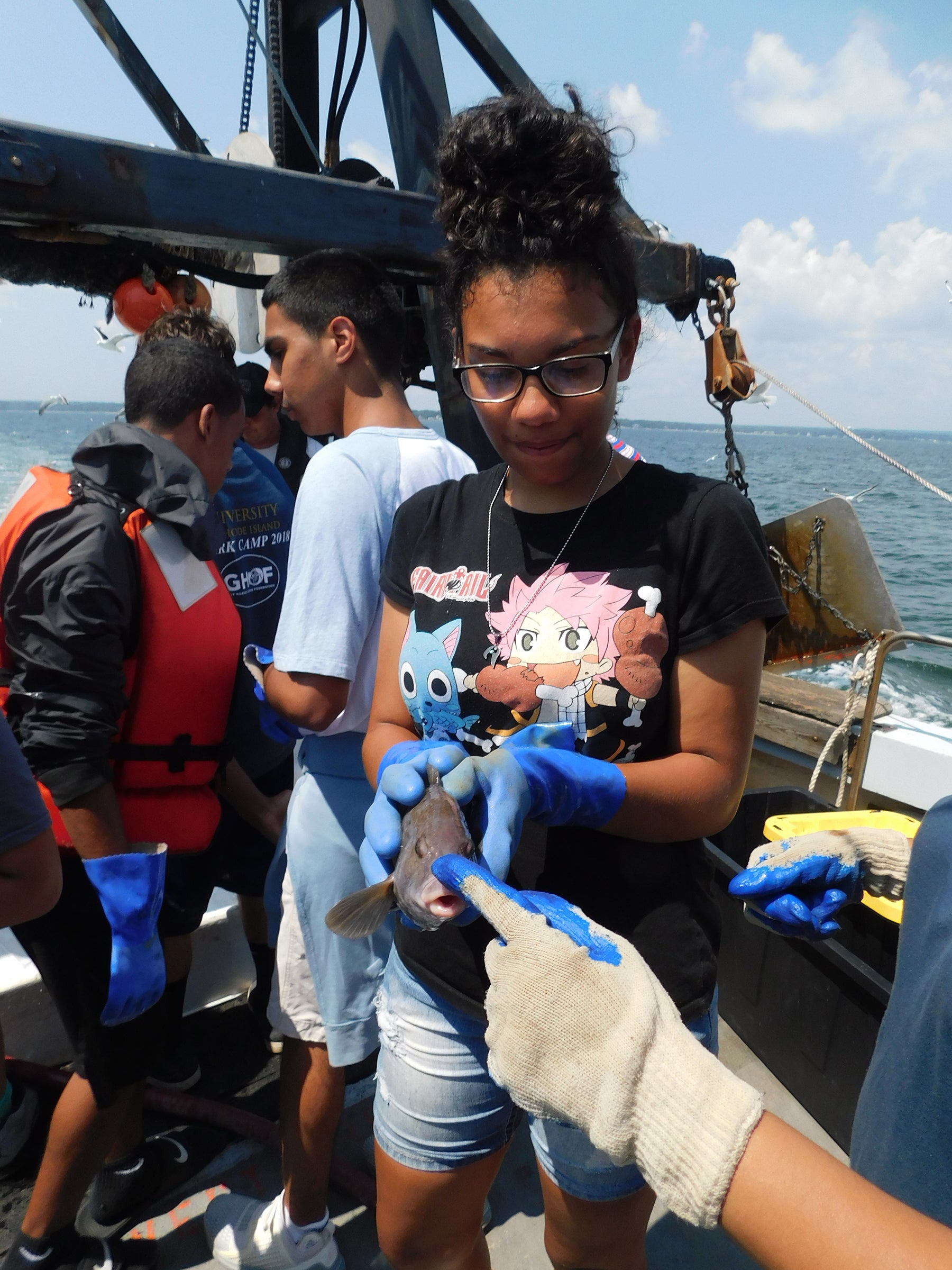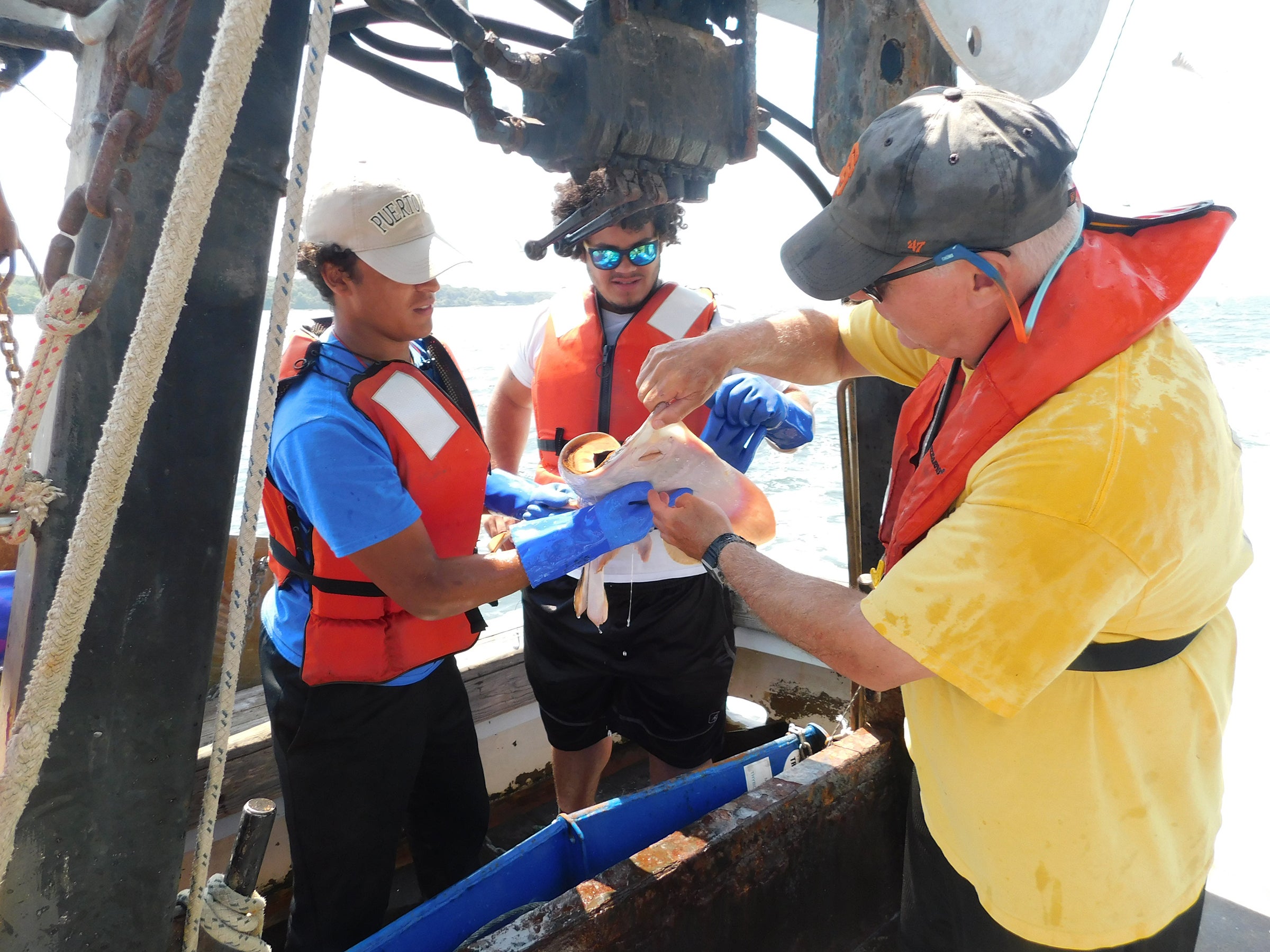KINGSTON, R.I. — August 28, 2018 — When 16 students from the Met School in Providence and Central Falls High School boarded the Capn’ Bert for the University of Rhode Island’s first Summer Shark Camp, they were quiet.
“They started out a little introverted,” said Brad Wetherbee, a biological sciences professor in the University of Rhode Island’s College of the Environment and Life Sciences and shark expert. “We had to really encourage them to put on life jackets and get involved. But now, I’m sure most of them would like to stay another week on the boat.”
Throughout the week, the students helped bait and pull lines, learn about the research boat and get close to more than 20 different species of marine life. And yes, there were sharks.

“I thought the sharks would feel rougher,” said Ricky Rodriguez, a junior at the Met. His favorite parts of this week were holding the sharks and learning about them. “It’s interesting, it’s not just watching, we’re going out and doing stuff.”
Wetherbee’s main focus in conducting the camp was all about exposure, both to the University and the sciences. Earlier in the week the students toured the campus, checked out URI’s laboratory facilities, and even heard from Donald H. DeHayes, provost and vice president for Academic Affairs, John Kirby, dean of the College of the Environment and Life Sciences. On its last day, the group headed back to shore early to talk about the college application process with URI’s admission staff.
“That’s what this camp is about, getting them excited about something they’ve never seen before,” Wetherbee said. “Typically, these students would never experience any of this before graduating from high school. Many are unaware of the choices available to them in higher education, and this camp’s goal is to give them a taste.”

During a typical day on the boat, Wetherbee and the students set baited lines to lure in sharks and other marine animals, and dragged trawl nets to capture fish and bring them on board. Students helped by baiting the lines and pulling them in at the end of the day.
As the boat crew brings in the trawl net, they’re met with oohs and ahhs over how many different fish are hauled onto the boat. Some call out their observations–a shark! Is that a flounder? Look at all the squid!–while everyone crowds around the observation deck. Some students wearing lifejackets step onto the back platform, eagerly awaiting the net to drop.
“When we first pulled up the net, I didn’t know there were that many creatures in Rhode Island waters,” said Melody Gonsalves, a senior at The Met. She knew she wanted to go into marine sciences, but always considered schools in other locations that seemed to have a wider variety of species to study, but she learned that “there’s a lot of biodiversity here.”
She’s always been interested in marine biology and had done internships at an aquarium before, but said Shark Camp is a completely different experience.

“This is really behind the scenes, it’s the icing on the cake,” Gonsalves said. “I’m lucky, not a lot of kids get to do things like this.”
Two of URI’s own students, sophomore Johniah Gomez, of Meriden, Connecticut, and fifth-year student Gyasi Alexander, of Miami, Florida, joined the students at the camp throughout the week. As coordinator and student assistant, Alexander worked on the logistical end of the camp, and has learned a few things along the way, himself.
“The point of this camp wasn’t to create junior scientists, it was exposure,” Alexander, a marine biology major, said. “In STEM and especially in marine sciences there’s a huge lack of people of color. It’s good for them to see through hands-on experience that people who look like them can do these types of things.”
As a wildlife conservation major, Gomez added that it’s also about exposure to sharks as a species, which is imperative to protecting them in the wild.
“Sharks are viewed as horrible and deadly animals, but they’re really not as aggressive as they’re portrayed,” Gomez said. “Sharks are so important to marine ecosystems and maintaining the balance in the ocean food chain.”
Before coming to Shark Camp, Rodriguez thought he wanted to go into general business. After handling some sharks, and being out on the water, his plans have definitely changed, he said.
“It makes me think about being a marine biologist,” Rodriguez said.
Emma Gauthier, a student writer in the URI Marketing and Communications Department and a journalism major, wrote this press release.

